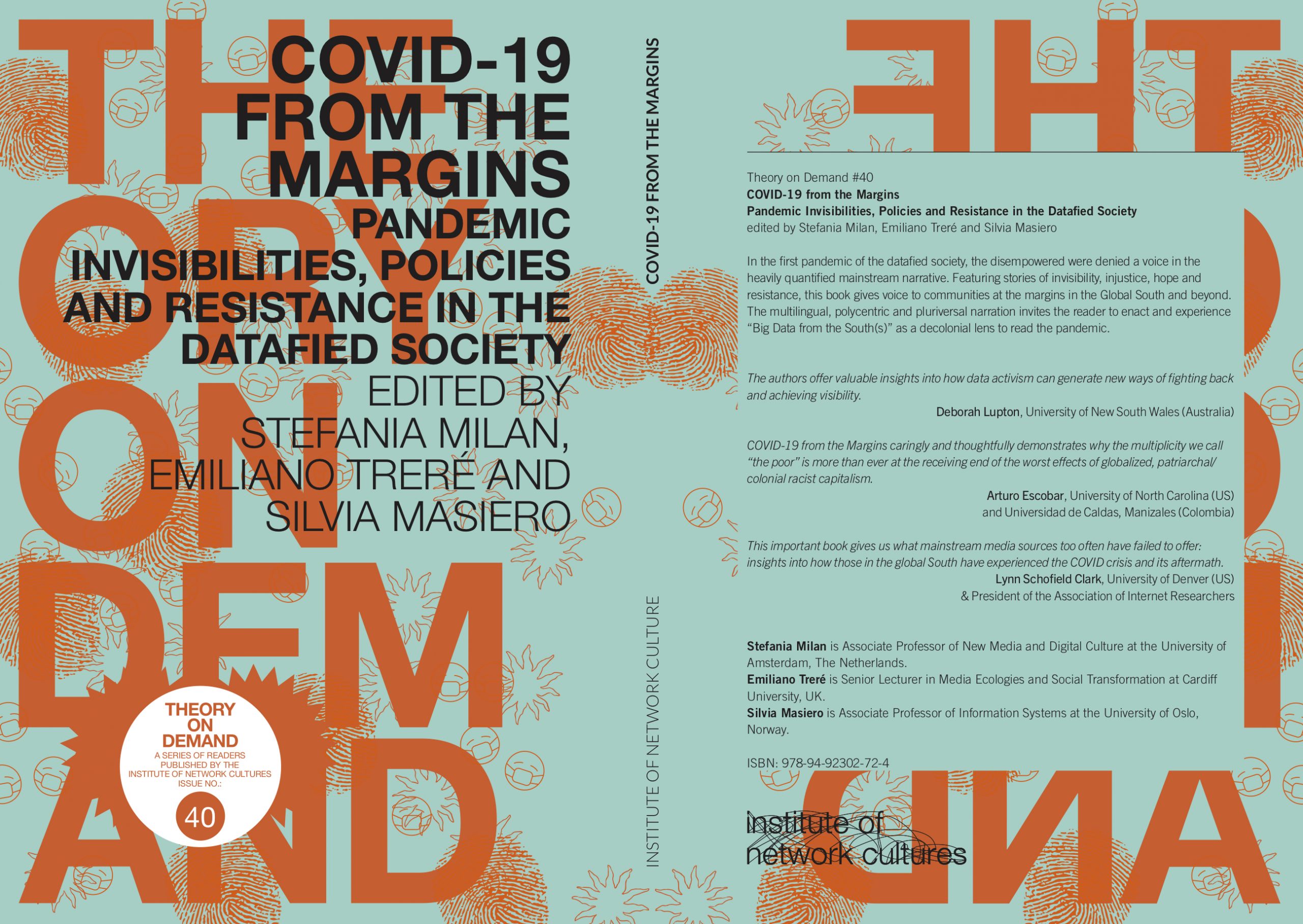Theory on Demand #40
COVID-19 from the Margins.
Pandemic Invisibilities, Policies and Resistance in the Datafied Society
Edited by Stefania Milan, Emiliano Treré and Silvia Masiero
COVID-19 from the Margins: Pandemic Invisibilities, Policies and Resistance in the Datafied Society stems from the blog ‘COVID-19 from the Margins’, launched in May 2020 to amplify the multilingual voices of social groups and individuals silenced in the overly-quantified narrative of the pandemic. Featuring contributions in five idioms, the anthology explores five core themes of the first pandemic of the datafied society seen from the perspective of the disempowered: human invisibilities and the politics of counting; perpetuated vulnerabilities and inequalities; datafied social policies; technological reconfigurations in the datafied pandemic; and pandemic solidarities and resistance from below. The five themes offer a snapshot of the social costs of the pandemic in countries as diverse as South Africa, China, Peru, Iran, Spain, New Zealand, India, Brazil, Indonesia, Russia—and counting. It gives voice to the untold stories of communities struggling to survive in the crisis, such as gig workers, indigenous groups, domestic violence survivors, impoverished families and vulnerable people, racialized individuals, migrants, rural dwellers, and the LGBTQ+ community.
‘COVID-19 from the Margins caringly and thoughtfully demonstrates why the multiplicity we call “the poor” is more than ever at the receiving end of the worst effects of globalized, patriarchal/colonial racist capitalism. But they are not passive victims, for their everyday forms of activism and re-existence, including their daily tweaking of the digital for purposes of community, care, and survival, has incredible insights about design and digital justice that this book takes to heart as we strive to undo the lethal effects of “the first pandemic of the datafied society”,’ wrote anthropologist Arturo Escobar (University of North Carolina, Chapel Hill & Universidad de Caldas, Manizales) commenting on the book.
The book is a multilingual conversation that celebrates linguistic and cultural diversity but also de-centers dominant ways of being and knowing while contributing a decolonial approach to the narration of the COVID-19 crisis. Moreover, it brings researchers, activists, practitioners, and communities on the ground into dialogue to offer timely, critical reflections in near-real time and in an accessible language. The result is a heterogeneous, polycentric and pluriversal narration, which invites the reader to enact and experience the “Big data from the South(s)” approach as an interpretive lens to read the pandemic.
Order and download the book HERE


